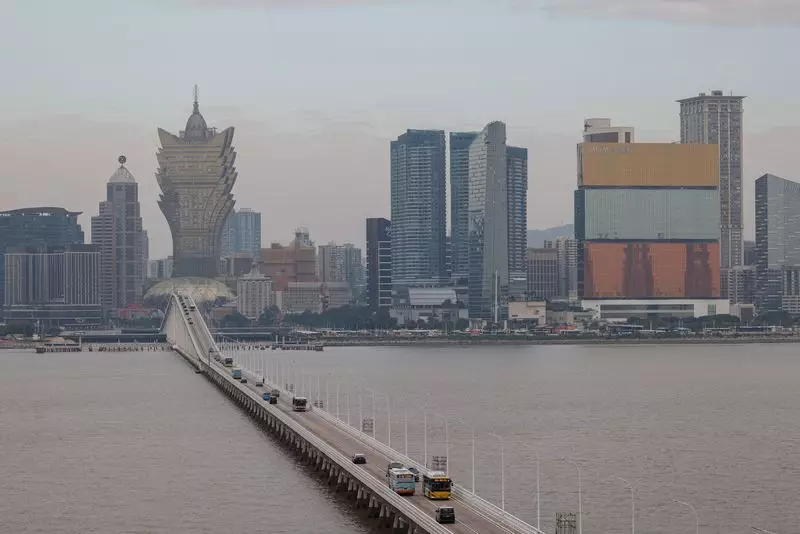In 2024, Macau, renowned as the largest gambling destination globally, experienced a significant upsurge in its casino revenues, which surged by nearly 24% year-on-year. The total gaming revenue reached 226.8 billion patacas (approximately $28.35 billion). However, this growth raises questions about the sustainability of an economy so heavily reliant on gambling that still lags behind pre-pandemic levels. With the 2019 gaming revenue peak established at 292.5 billion patacas, it’s evident that while the recovery is promising, a longer path lies ahead.
Nevertheless, December posed a moment of worry as the revenue experienced a decline of 2.0%, marking a rare month-on-month regression in an otherwise robust year. This downturn coincided with heightened security measures during a state visit by President Xi Jinping, hinting at a more profound narrative: Macau’s dependency on gambling brings not only economic returns but vulnerability amidst political and social machinations. The combination of fluctuating revenue amid strict governmental controls underscores the inherent risks of a gaming-centric economy.
During his visit to Macau, President Xi emphasized the necessity for the region to diversify its economic portfolio. His remarks reflected a critical stance on Macau’s over-reliance on casinos, pointing towards a need for development in alternative industries. This directive aligns with China’s broader vision of regional economic integration through initiatives such as the Greater Bay Area development plan. This ambitious aim integrates cities including Hong Kong and Guangzhou to bolster economic cooperation and create a dynamic regional economy.
Xi’s ideas are not merely strategic for local governance but resonate on a national scale. He advocated for Macau’s enhanced connectivity with Portuguese-speaking nations and the need to engage more earnestly in the Belt and Road Initiative—a far-reaching infrastructure and economic development program. By entering into alliances and opening new sectors, Macau can harness its unique positioning to cultivate an economy insulated from the volatility of gambling.
Macau’s challenge lies in transforming its economic model without alienating the lucrative gambling sector that has historically fueled its prosperity. With a staggering 80% of tax revenues derived from casinos, the region finds itself at a crossroads; its economic stability rests precariously on an industry susceptible to shifts in regulatory landscapes and global sentiments towards gambling.
Furthermore, the recent crackdown on high-roller VIP clientele due to China’s anti-corruption measures, combined with the pandemic’s travel restrictions, has left a lingering effect on tourism, especially from mainland China. The future approach should include holistic strategies—balancing tourism and the gaming industry with innovative sectors such as technology and education, thereby creating a more resilient economic framework.
While the revenue figures for 2024 offer a bright spot in Macau’s economic narrative, the overarching concern lies in achieving genuine diversification. Policymakers must recognize that fostering a sustainable economic environment involves embracing change and actively seeking avenues beyond gambling to secure the future prosperity of this unique region.

